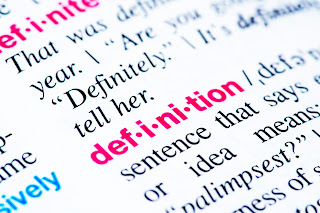4/16 An Analysis of Qatar’s Mediation Law No. 20 of 2021, The Definition of Mediation
Qatar's new mediation law defines "Mediation" as: "An amicable means of settling disputes, by mutual agreement between the parties, or by a court order."
Admittedly, I am working off an unofficial translation, but oh, boy.
Sample Definitions of Mediation
Before I discuss this definition, I'd like to share some definitions I use in my law school courses in the class introducing mediation to them:
- “Mediation is simply a negotiation conducted with the assistance of a third party….[T]he mediator has no decision-making power, maintains strict confidentiality and involves the clients deeply in the settlement process.” HAROLD ABRAMSON, MEDIATION REPRESENTATION (2004) at 67-68.
- “Mediation is an extension or elaboration of the negotiating process that involves the intervention of an acceptable third-party who has limited or no authoritative decision-making power. This person assists the principle parties in voluntarily reaching a mutually acceptable settlement of the issues in dispute. [M]ediation leaves the decision- making power primarily in the hands of the people in conflict. . . . Mediation is usually initiated when the parties no longer believe that they can handle the conflict on their own . . . .” CHRISTOPHER W. MOORE, THE MEDIATION PROCESS: PRACTICAL STRATEGIES FOR RESOLVING CONFLICT 8 (2d ed. 1996) (creator of Sphere of Conflict).
- “Mediation is the feminine face of dispute resolution. Mediation is not the cause but a product of significant changes in society, and it is the beneficiary of a trend away from confrontation toward problem solving and beyond to mutual respect and wider gain. There is widespread evidence that people do not lose their human characteristics when they become litigants – that they prefer processes in which they have an opportunity for choice and for significant participation, particularly a chance to tell their stories.” BARBARA A. PHILLIPS, MEDIATION FIELD GUIDE: TRANSCENDING LITIGATION AND RESOLVING CONFLICTS IN YOUR BUSINESS OR ORGANIZATION xiv (2001) (former U.S. Attorney).
- “Mediation’ means a process in which a neutral facilitates communication between the parties and, without deciding the issues or imposing a solution on the parties, enables them to understand and resolve their dispute.” VA. Code. §8.01-576.4.
- “Imagine, if you will, a jigsaw puzzle in which the pieces can autonomously change their shape. The person attempting to solve such a puzzle has to continuously adjust his or her vision of how the pieces might align themselves to make a whole. Mediators are, in some ways, trying to solve such a puzzle. They seek to understand, with the same degree of attachment as the person solving the puzzle, the manner and extent to which the parties are willing to adjust their positions to fit those of the other parties, and yet paradoxically they can do so only by involving themselves in a deeply personal way with the parties.” DANIEL BOWLING & DAVID HOFFMAN, BRINGING PEACE INTO THE ROOM: HOW THE PERSONAL QUALITIES OF THE MEDIATOR IMPACT THE PROCESS OF CONFLICT RESOLUTION 40 (2003).
- “For some of us, mediation means negotiating a cease-fire, while for others it is facilitating a settlement, ending a dispute, resolving the underlying reasons people are fighting in the first place, transforming the parties, dismantling dysfunctional systems, promoting compromise, encouraging dialogue, ending litigation, coaching parties to let go and move on, promoting forgiveness, empowering dialogue, recommending solutions, or achieving reconciliation.” Id. at 52.
Essential Elements of a Definition
These iterations of the definition highlight several aspects of mediation:
- The use of a third-party neutral who has no decision-making power, but helps the parties communicate, identify interests and issues, enhance understanding between them, negotiate, and resolve the dispute.
- The parties retain the decision-making authority and work to reach a mutually acceptable settlement agreement.
- The mediator has no power to impose a solution on the parties, unlike arbitration.
- The process is subject to broad rules of confidentiality.
Shortcomings of the Definition in Qatari Mediation Law
Now, let's look again at the Qatari law's definition of Mediation.
It fails to mention the use of a third-party neutral. Accordingly, the definition sounds more like a definition of negotiation than of mediation.
It does not attempt to define the role of the mediator (as facilitator), or conversely limit his or her role when it comes to option generation or decision-making. The drafters probably thought the next definition, of "Mediator," would solve this problem, but it doesn't. That definition states that a Mediator is "[o]ne or more persons who directly undertake mediation between the parties."
It does reinforce the aspirational goal of mediation that it is an "amicable" process (compared to what?). But, I have been involved in some very unamicable mediations that still settled the dispute. Perhaps a better word choice would be "voluntary means of settling disputes." Although, like the Virginia statute, the word "process" needs no adjective.
By reinforcing the role of the parties to reach "a mutual agreement" it does reflect a core value of mediation, that of party self-determination. I will focus on this core value in later posts.
The interjection of the words "or by court order" are very confusing. They suggest that a court can impose an agreement, which is not mediation by any definition. What the drafters may have intended was that a mutual agreement could be enforced by the court, if necessary.
In short, this definition needs a lot of work.




Comments
Post a Comment